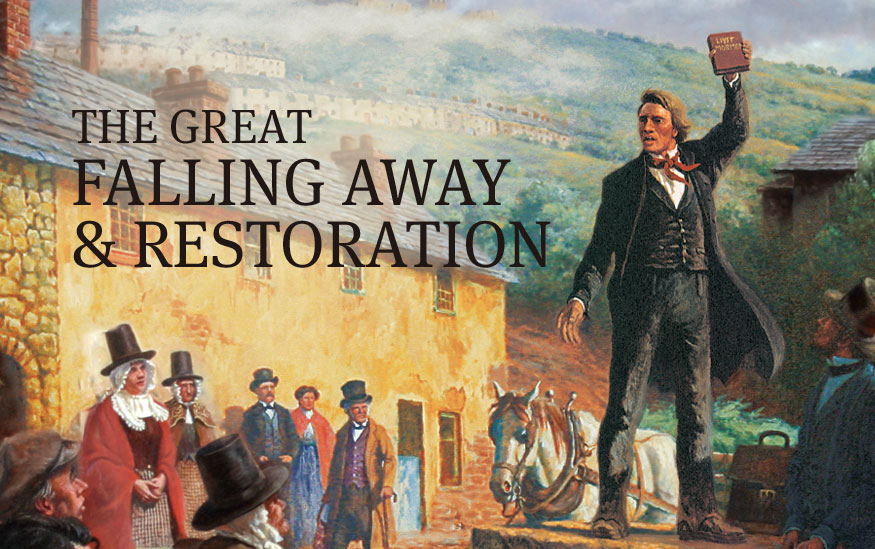Tag: Mormon
Music Monday: Amazing Grace
I’ve been an acapella mood recently, so expect to see a bit more of that over the next couple of weeks. Here’s a rendition of the “Amazing Grace” by an all-female a cappella group from Brigham Young University. Mormons singing a Protestant hymn, but my, they do it beautifully!
Amazing grace
How sweet the sound
That saved a wretch like me
I once was lost, but now I’m found
Was blind, but now I see
Through countless dangers, doubts and fears
I have already come
Gods grace has brought me safely here
And grace will lead me home
My chains are gone
I’ve been set free
My God, my Savior has ransomed me
And like a flood His mercy reigns
Unending love, amazing grace
His guiding hand shall be my stay
His strength with me abide
And though I stumble day by day
He shall not leave my side.
My chains are gone, I’ve been set free
My God, my Savior has ransomed me
And like a flood, His mercy reigns
Unending love, amazing grace.
This earth will one day melt like snow
The sun refuse to shine
Yet God, who sent me here below*
Will be forever mine.
You’ll be forever mine.
* The more traditional line here is “But God, who called me here below”. I haven’t confirmed it, but I have a suspicion that the line used in the video might be an attempt to sneak into the song the Mormon idea of pre-existent souls. I’m choosing to interpret it in the sense that, while on Earth, God sends me to share the Gospel
Great Apostasy Questions

A while back, I produced a post in which I listed some Canon Questions, some specific questions I ask when talking to non-Catholics about the Table of Contents found in their Bible. Following my post concerning my recent encounter with a Jehovah’s Witness, I’ve decided to do another post similar to my Canon Questions, but this time concerning the “Great Apostasy”, the belief that that the Church effectively disappeared from the earth some time after Christ’s death.

Groups like the Mormons hold to the Great Apostasy and use this as an explanation for the significant differences between their doctrine and the doctrine of historic Christianity. Muslims hold to this narrative too, to justify the teachings of Muhammad which stand in stark contradiction to the New Testament. Additionally, most Protestant groups, while typically not holding such a radical version of this doctrine, usually hold to some variation of it, saying that somewhere along the line the Church went off-track in a rather major way.
Bible Canon Questions

 Today over at St. Joseph’s Vanguard Devin wrote an article about How Evangelicals Know Their Canon Is Correct. It describes an exchange Devin had with an Evangelical concerning which books belong in the Bible.
Today over at St. Joseph’s Vanguard Devin wrote an article about How Evangelicals Know Their Canon Is Correct. It describes an exchange Devin had with an Evangelical concerning which books belong in the Bible.
Now, not all Evangelicals will hold those views expressed in the article, but I have to say that Devin’s exchange bears a strong resemblance to conversations I myself have had with non-Catholics concerning Sacred Scripture…
In my experience, when a Catholic-Protestant dialog reaches this stage it often stagnates. You then spend a lot of time going round and round in circles…
In an effort to stop this from happening, I find that it is generally best to keep asking questions. These questions will hopefully reveal to the non-Catholic his unknown dependency upon Catholic Church with regards to the formation of the Canon.
You may recall a little while ago I wrote about an exchange I had with a chap called Jay. When we were talking about the Bible, these were some of the questions I asked him:
1. Let’s say I don’t believe James should be in the Bible. Show me why I’m wrong. What’s to stop me from just taking this book out of the Bible?
2. Let’s say I believe that Clement’s letter to the Corinthians should be in the Bible. Show me why I’m wrong. He was alive during the time of the Apostles and Clement has strong credentials for being taught by them…
3. Who wrote the Letter to the Philippians? What about the Gospel of Mark? How do you know?
4. Who were the people who painstakingly copied the New Testament manuscripts throughout the centuries?
5. Have you checked the authenticity of every book in the Bible? Are you sure that we have all the available “inspired texts”? How did you reach your opinion over what and what isn’t the Word of God? Are you 100% certain? Can I trust your judgment on this? Because if you’re wrong I could be ignoring text which is the Word of God and reading text which isn’t…
6. Who assembled the canon of the New Testament and when? Please give me names and dates.

